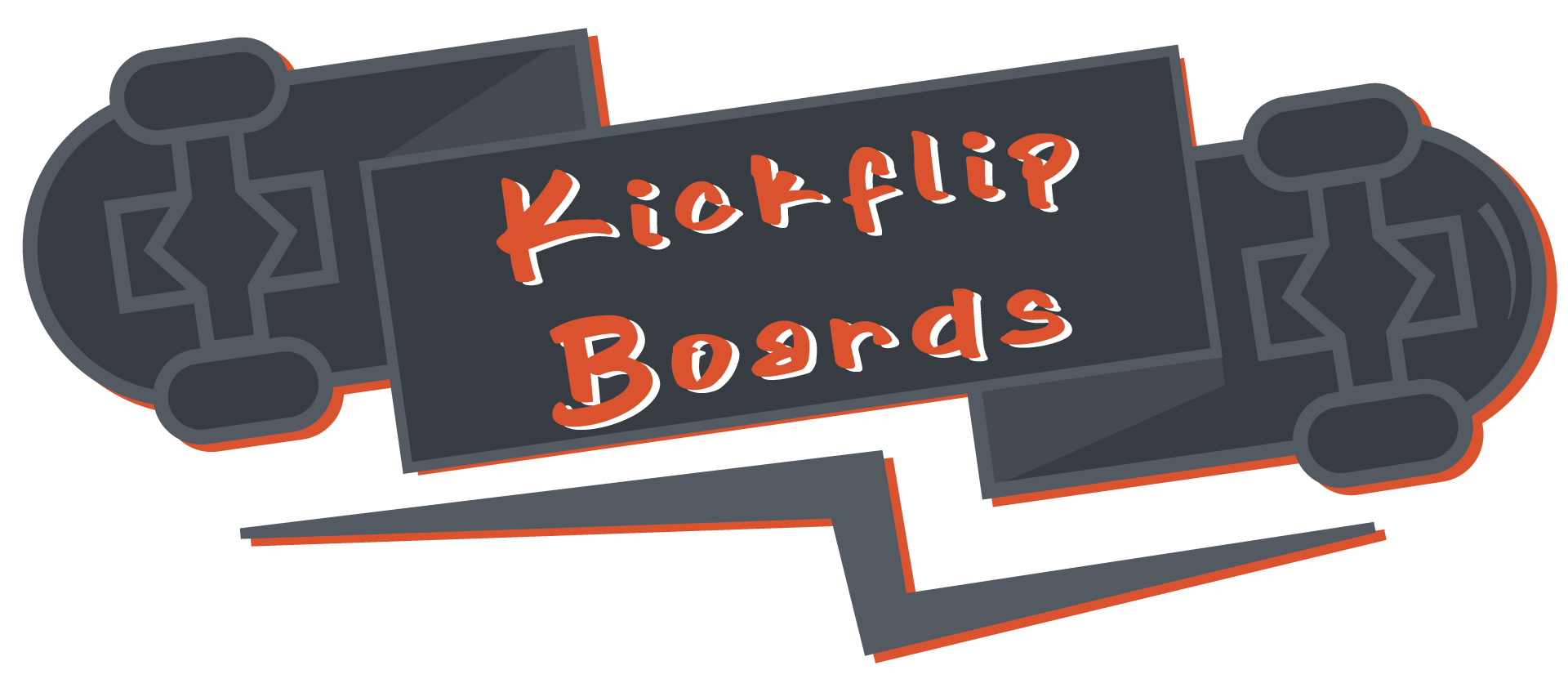For individuals seeking to excel in sports and activities, mastering the art of landing a trick is often the key to unlocking consistent success. Whether it’s executing a difficult skateboarding trick, perfecting a gymnastics routine, or navigating the obstacles of parkour, the ability to land a tricky skill or stunt requires a combination of physical skill, mental toughness, and strategic planning. By understanding the key steps involved in successfully executing a challenging trick, developing muscle memory and coordination, and employing effective mental preparation and physical training methods, athletes can significantly improve their chances of landing even the most complex skills.

Mastering Difficult Skateboarding Tricks
To successfully execute a difficult skateboarding trick, you need to master the fundamentals, build confidence, and perfect your technique.
-
Develop a Strong Foundation
Start by learning the basic skills required for skateboarding, such as balancing, pushing, and turning. Practice these skills regularly until you feel comfortable and confident.
-
Break Down the Trick
Once you have a solid foundation, break down the difficult trick into smaller components. Identify the individual movements and actions required to complete the trick, and practice each component separately.
-
Focus on Technique
Pay attention to your body positioning, foot placement, and movement. Make adjustments as needed to ensure you’re executing the trick correctly.
-
Practice Regularly
Consistency is key when it comes to mastering a difficult skateboarding trick. Set aside time each day to practice, and don’t get discouraged if you don’t see progress immediately.
-
Stay Safe
Always wear protective gear, including a helmet, knee pads, and elbow pads. Learn how to fall safely and properly, and never attempt a trick that’s beyond your skill level.
Additional Tips
Watch videos of professional skaters performing the trick you want to learn. Analyze their technique and try to incorporate their moves into your own skating.
Skate with friends who are more experienced than you. They can offer valuable advice and feedback to help you improve your skills.
Don’t be afraid to try again and again. Every successful skater has failed numerous times before landing a difficult trick.
Resources
Kickflip Boards offers a variety of resources to help you improve your skateboarding skills, including tutorials, guides, and product reviews.
Check out our blog for the latest news and trends in skateboarding, as well as tips and tricks from experienced skaters.
Visit our forum to connect with other skaters, ask questions, and share your experiences.
Conclusion
Mastery takes time and patience, but with dedication and persistence, you can conquer even the most difficult skateboarding tricks.
Mastering Complex Tricks in Sports and Activities
To consistently land complex tricks in sports and activities like gymnastics, skateboarding, or parkour, it’s essential to develop a combination of physical skills, mental toughness, and strategic training.
-
Physical Skills Development
Focusing on building strength, flexibility, and coordination can significantly enhance your ability to execute complex movements.
- Engage in regular exercise routines that target specific muscle groups, such as weightlifting, plyometrics, or bodyweight exercises.
- Incorporate flexibility and mobility exercises to improve range of motion and reduce injury risk.
- Practice balance and coordination drills to enhance overall athleticism.
-
Mental Toughness and Confidence Building
Developing mental resilience and confidence is crucial for overcoming fears and pushing past perceived limits.
- Practice mindfulness and meditation techniques to cultivate a growth mindset and manage anxiety.
- Set achievable goals and celebrate small victories to build momentum and confidence.
- Seek feedback from coaches, peers, or mentors to identify areas for improvement and track progress.
-
Strategic Training and Progression
A well-structured training plan can help you gradually build skills and confidence, reducing the risk of injury and burnout.
- Create a customized training schedule that balances skill development, conditioning, and recovery.
- Break down complex movements into smaller components and practice each segment until mastery.
- Gradually increase difficulty and intensity as skills become more refined.
Additional Tips for Success
Stay motivated and engaged by surrounding yourself with supportive peers, seeking inspiration from role models, and tracking progress through video analysis or journaling.
Remember that mastering complex tricks takes time, patience, and dedication – stay committed to your training and celebrate small wins along the way.
Resources for Further Learning:
- USA Gymnastics
- ISPO Skateboarding
- Parkour Generations

Mental Preparation and Physical Training Methods to Increase Chances of Landing a Tricky Skill or Stunt
To land a tricky skill or stunt, it’s essential to combine mental preparation with physical training.
-
Mental Preparation Techniques:
- Focus on visualization exercises to mentally rehearse the trick, breaking it down into smaller components and visualizing success.
- Develop a positive mindset by focusing on self-confidence and overcoming fear.
- Practice mindfulness techniques, such as meditation and deep breathing, to stay focused and calm under pressure.
- Set realistic goals and celebrate small victories to build momentum and motivation.
-
Physical Training Methods:
- Start with fundamental skills and gradually progress to more complex ones, building a strong foundation before attempting advanced tricks.
- Incorporate strength and conditioning exercises to improve overall fitness and athleticism.
- Practice regularly, setting aside dedicated time for training and perfecting techniques.
- Seek guidance from experienced coaches or mentors who can provide personalized feedback and instruction.
-
Combining Mental and Physical Preparation:
- Integrate mental preparation techniques into physical training sessions, using visualization exercises to enhance focus and concentration.
- Use physical training to reinforce mental toughness, pushing through challenges and setbacks with resilience and determination.
- Monitor progress and adjust training plans accordingly, refining techniques and addressing weaknesses.
- Stay adaptable and open-minded, embracing new ideas and approaches to continue improving and progressing.
By combining mental preparation and physical training, individuals can significantly increase their chances of landing a tricky skill or stunt, developing the skills, confidence, and resilience needed to succeed in various disciplines.
Additional Tips and Resources:
- Consult with experienced professionals, such as coaches or trainers, to receive personalized guidance and feedback.
- Join online communities or forums to connect with others who share similar interests and goals.
- Explore educational resources, such as books, videos, or tutorials, to gain a deeper understanding of techniques and principles.
- Stay motivated and inspired by tracking progress, celebrating successes, and learning from failures.
Recommended Reading:
For further information on mental preparation and physical training methods, consider exploring the following resources:
- Skateboard Magazine offers insightful articles and tutorials on skateboarding techniques and culture.
- The USA Skateboarding website provides valuable resources and information on skateboarding competitions, events, and programs.
- Mindful.org offers a wealth of information on mindfulness and meditation techniques, helping individuals cultivate greater awareness and focus.

Mastering Challenging Tricks in Sports and Activities
To successfully land a difficult trick in sports or activities, it’s essential to consider both psychological and technical factors.
-
Psychological Factors:
- Fear and anxiety can significantly impact performance, making it crucial to develop mental toughness and confidence.
- A positive mindset and self-talk can help overcome fear and stay focused under pressure.
- Visualization techniques can aid in preparing for and executing complex movements.
- Developing resilience and learning from failures can contribute to improved performance over time.
-
Technical Factors:
- Understanding the fundamental mechanics and physics involved in the trick is vital for successful execution.
- Practicing regularly and consistently can help develop muscle memory and improve technique.
- Breaking down complex movements into smaller components can make them more manageable and increase chances of success.
- Seeking guidance from experienced coaches or instructors can provide valuable feedback and help identify areas for improvement.
Key Strategies for Success:
-
Focus on Progress, Not Perfection:
Emphasize progress and small victories rather than striving for perfection, which can lead to frustration and burnout.
-
Develop a Pre-Performance Routine:
Create a consistent routine to prepare for competition or high-pressure situations, helping to manage nerves and stay focused.
-
Stay Flexible and Adaptable:
Be willing to adjust techniques and approaches as needed, recognizing that flexibility is key to overcoming obstacles and achieving success.
-
Cultivate a Growth Mindset:
View challenges as opportunities for growth and development, embracing a mindset that emphasizes learning and improvement over fixed abilities.
Additional Resources:
- Skateboard Magazine offers insightful articles and tutorials on various skateboarding techniques and styles.
- The USA Skateboarding website provides valuable resources and information on skateboarding competitions, events, and training programs.
- Kickflip Boards features a comprehensive guide to skateboard types, covering various styles and models suitable for different skill levels and preferences.
Mastering the Art of Landing a Trick
Whether you’re a seasoned pro or just starting out, mastering the art of landing a trick takes time, patience, and dedication.
-
Develop a Pre-Landing Routine
Establish a consistent pre-landing routine to get yourself mentally prepared for the trick. This could include visualization exercises, deep breathing, or physical warm-ups.
-
Focus on Technique Over Speed
Rather than trying to rush through the trick, focus on executing it with precision and control. Practice slow and controlled movements to develop muscle memory.
-
Break Down Complex Tricks into Simpler Components
When learning a new trick, break it down into smaller components and master each part before moving on to the next. This will help you build confidence and reduce frustration.
-
Practice Regularly and Consistently
Regular practice helps solidify new skills and builds endurance. Aim to practice at least 3-4 times a week, with a mix of light and intense sessions.
-
Learn from Failure and Analyze Mistakes
Don’t be discouraged by failures – they’re an opportunity to learn and improve. Analyze what went wrong and adjust your technique accordingly.
-
Stay Flexible and Adaptable
Be willing to adjust your approach as needed. Different tricks require unique techniques, so stay flexible and adapt to the situation.
-
Get Enough Rest and Recovery Time
Adequate rest and recovery are crucial for physical and mental rejuvenation. Make sure to get enough sleep and take regular breaks to avoid burnout.
-
Seek Guidance from Experienced Coaches or Mentors
Working with experienced coaches or mentors can help you refine your technique, identify areas for improvement, and gain valuable insights.
-
Stay Positive and Focused
Maintaining a positive attitude and staying focused will help you overcome obstacles and push through challenges. Believe in yourself and your abilities.
Additional Resources:
For more information on mastering the art of landing a trick, check out these resources:
- Skateboard Magazine offers expert tips and tutorials on various skateboarding techniques.
- The USA Gymnastics website provides training guides, videos, and articles on gymnastics techniques and safety.
- Parkour Generations offers training programs and workshops for parkour enthusiasts.
Remember, mastering the art of landing a trick takes time, patience, and dedication. Stay committed, persistent, and always strive to improve.

Mastering the Art of Flight: Essential Strategies for Landing Difficult Tricks Successfully
As a skateboard enthusiast, I’ve spent countless hours perfecting my skills and learning the secrets to landing even the most daunting aerial stunts.
- Mental Preparation: Before attempting a difficult trick, take a few moments to visualize yourself successfully landing it. Imagine the feeling of confidence and accomplishment you’ll experience once you’ve mastered the trick.
- Fear Management: Acknowledge and accept your fear, but don’t let it hold you back. Break down the trick into smaller components and focus on executing each part perfectly.
- Physical Preparation: Make sure you’re physically prepared for the trick by warming up properly and stretching before attempting it.
- Practice Makes Perfect: Don’t be discouraged if you don’t land the trick immediately. Keep practicing and refining your technique until you feel confident enough to attempt it again.
- Stay Focused: Maintain a clear mind and stay focused on the task at hand. Avoid distractions and stay present in the moment.
- Learn from Mistakes: Analyze what went wrong and use it as an opportunity to learn and improve.
Tips for Landing Difficult Tricks
Here are some additional tips to help you land difficult tricks:
- Start Small: Begin with simpler versions of the trick and gradually work your way up to the more complex ones.
- Break Down the Trick: Divide the trick into smaller parts and focus on mastering each component before moving on to the next one.
- Use Visual Aids: Watch videos or tutorials of others performing the trick to get a better understanding of the movement and technique involved.
- Get Feedback: Ask a friend or coach to provide feedback on your technique and offer suggestions for improvement.
Conclusion
Landing difficult tricks requires a combination of mental and physical preparation, practice, and patience. By breaking down the trick into smaller components, visualizing success, and staying focused, you can overcome your fears and master even the most challenging aerial stunts.

0 Comments